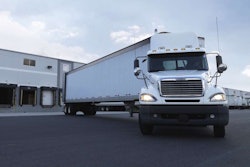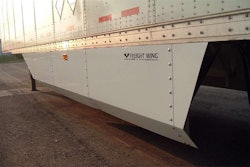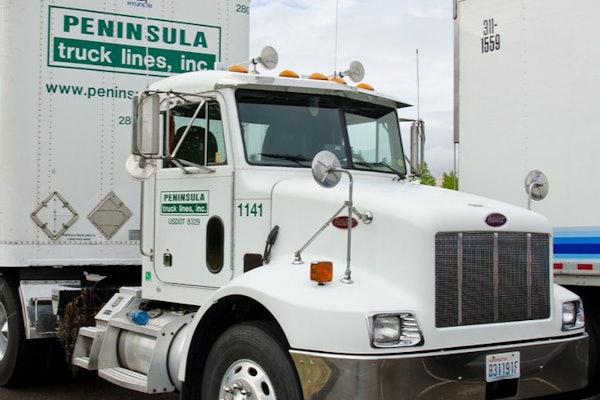
As CCJ reported last week, the comments are in on some initial work by NHTSA and EPA on Phase II of the fuel efficiency standards for medium- and heavy-duty trucks. The story featured the formal comments filed by truck and engine makers and industry associations. I didn’t include the comments from environmental advocacy groups because I’d already let the story run long, and my brain hurt from skimming hundreds of pages of climate science.
I’ll not go into much detail here (the documents are linked, so feel free to dig in), but the gist is that it doesn’t matter whether one is terrified of global warming or furious that a malevolent hoax is destroying democracy, the issue is whether the government takes man-made climate change seriously and regulates accordingly.
Here are some highlights from proponents of strict regulation of greenhouse gas emissions:
• The Environmental Defense Fund devoted its comment to explaining the importance of setting an accurate figure for the Social Cost of Carbon. This is important because government rulemaking has to include a cost-benefit analysis. The higher the benefit (reduction of harmful carbon) the higher the cost to industry may be. (Remember FMCSA’s questionable science on the health benefits to drivers of an extra hour of rest?) A federal Interagency Working Group has set the figure at $37 per metric ton of CO2, that’s up from the 2010 estimate of $24/ton.
The bottom line for trucking: EDF calls for at least a 40 percent reduction in average fuel consumption for the entire fleet by 2025, compared to 2010 trucks. “Such standards are technically feasible, economically beneficial and fundamentally required to alter the upwards path of medium- and heavy-duty GHG emissions and fuel consumption,” says the analysis, signed by six PhDs and three lawyers.
Will the industry get tax relief for the investment needed for that 40 percent reduction? Not anywhere near $37/ton in CO2 reduction, I’ll wager.
• The Center for Biological Diversity argues, with some two dozen supporting studies attached, that climate change is very real and the window of opportunity is closing quickly. CBD calls on NHTSA to act with “urgency,” and to understand that “only the most stringent alternative within the range of technical feasibility and cost-effectiveness can be adequate to tackle the climate crisis that is upon us.” (Emphasis added.)
The group points out that NHTSA is already behind its own timetable for Phase II (and Phase I wasn’t particularly challenging). CBD emphasizes that NHTSA must present alternatives that are “technology forcing.”
“The forthcoming standards, even though they are some five years away from implementation, do not seem to anticipate technological improvements by setting performance standards in excess of what existing technologies can produce,” CBD writes. (Again, my emphasis.)
Hmmm, “technology forcing” sounds familiar: Set a standard whether it can be it met or not, and let the industry work it out. ‘The Great Pre-Buy of 2020’ has a certain zing to it.
• Finally, for a little comic relief, the Consumer Federation of America’s polling shows that 74 percent of respondents support the truck fuel efficiency standards with only 25 percent opposing them, yet “in spite of the strong desire to regulate the reduction of fuel use by big trucks, only 56 percent of Americans are aware of the impact that such fuel use has on our pocketbooks.”
Indeed, according to the CFA study, increasing heavy duty truck fuel efficiency by 50 percent would cut truck fueling costs, saving the average household $250 per year on goods and services.
So, it’s a pocketbook issue: Better truck fuel economy means cheaper prices, because surely truckers will pass those huge savings along. And consumers will use that money to buy more stuff, which means more freight for truckers. It’s a win-win – who’s not for that?
(For the full collection of Phase II comments, have a look at the rulemaking page.)
Less amusing, all of this comes on the heels of a report by the EPA Inspector General that shows the agency is doing a bang-up job of reaching Obama administration climate change goals – although EPA needs to improve its data quality and record keeping. (So the government gets to play fast-and-loose with the paperwork, as long the job gets done?)
Also this week, we’ve seen a couple of court rulings on independent contractor status and Graves Amendment liability protections that plaintiff’s lawyers are trumpeting as ‘landmark’ and industry-changing. Likely, they’re a little excited by the prospect of a large award potentially leading to a new vacation home’s worth of future settlements, but preliminary legal analysis suggests most carrier operations should still be protected. Maybe.
However, the aggressive agenda of the Obama administration – filling the void left by a divided Congress – should not be underestimated.
Already this year, the administration has used the Labor Department and Equal Employment Opportunity Commission to broaden overtime eligibility, to determine that pregnant women may be covered under ADA and declare that criminal background checks on job applicants could be discriminatory. Yes, you need to be careful about not hiring felons. But, hey, maybe felons are the solution to the driver shortage? (EEOC’s latest guidance is here, and a recent employment law guide is here.)
For trucking, FMCSA said this week that it’s looking into the connection between driver pay and safety. That could easily be interpreted as the next step to federal regulation of truck driver compensation.
If a driver feels that he’s not getting paid enough and is, therefore, unsafe? Call OSHA. FMCSA and OSHA have recently signed an interagency cooperation agreement to handle just this sort of policing, and have already picked up more than $1 million in settlements for whistleblower complaints over unsafe carrier operations (reports here and here).
Now I’m no conspiracy theorist, nor do I think government is an inherent impediment to human progress, or even basic commerce. I very much support safety and workplace fairness, to say nothing of having clean air to breathe and to live in a climate that resembles the one I grew up in.
But I am convinced that centralized planning of a large economy has never worked: there are too many moving parts, and control stifles innovation. And any regulation that has a significant economic impact is, in fact, centralized planning. So we must be cautious.
Basically, trucking is the definition of a dynamic industry – or was. The government is taking it the wrong way, fast. Compliance is no standard of excellence.
Regardless of one’s politics, stay informed.











